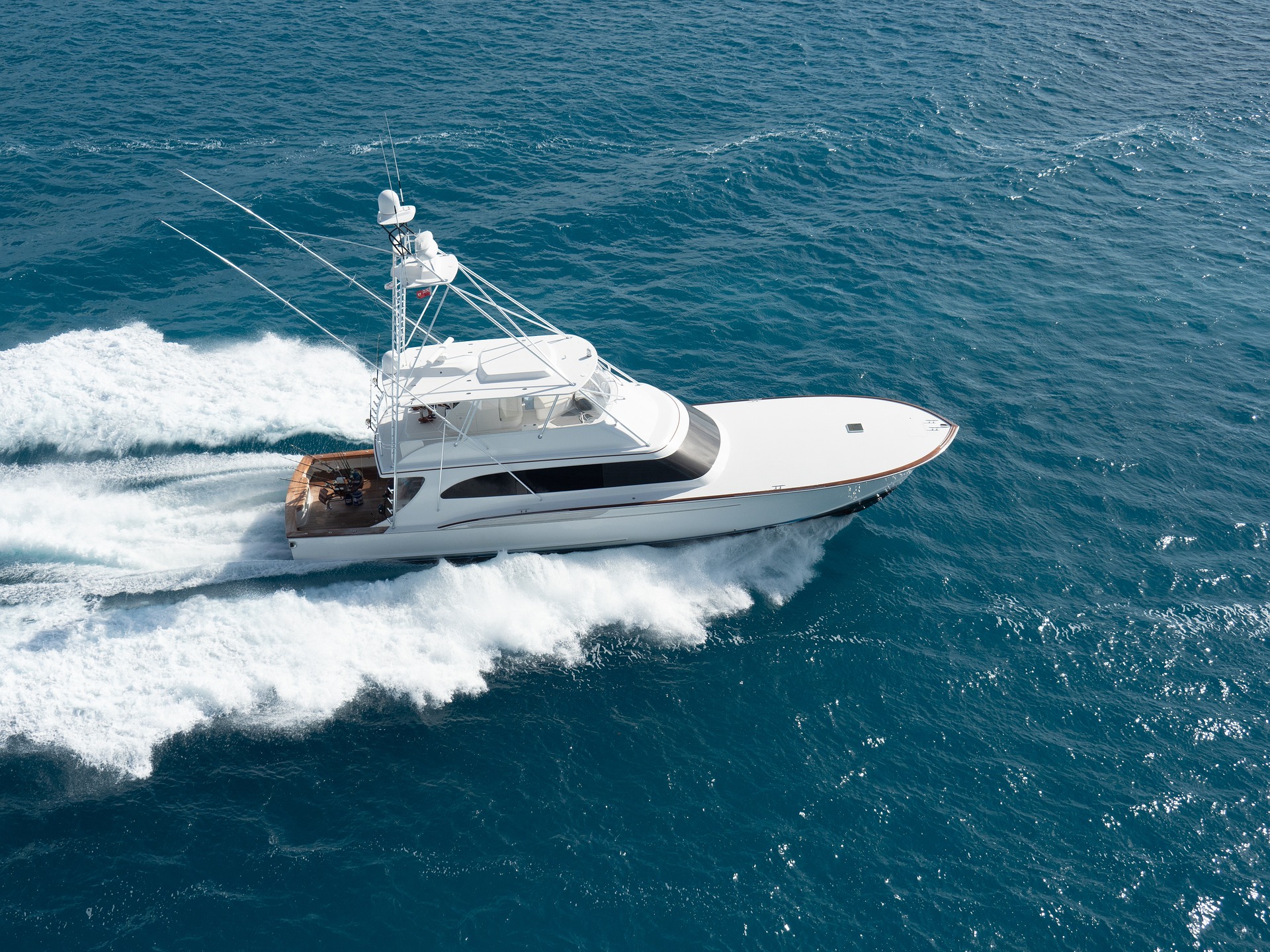The Ultimate Guide to Deep Sea Boating: Adventure on the Open Waters
Discover the thrill of deep sea boating and the unique experiences it offers. From fishing and wildlife spotting to exploring open waters, it provides adventure, relaxation, and a chance to connect with nature, all while enjoying the freedom and excitement of life on the sea.

Understanding Deep Sea Boating Fundamentals
Deep sea boating refers to maritime activities that take place in offshore waters, typically beyond coastal shelters and in open ocean environments. Unlike casual lake or river boating, deep sea ventures require more substantial vessels equipped to handle larger waves, stronger winds, and extended periods away from shore. These boats are specially designed with seaworthiness in mind, featuring robust hulls, reliable navigation systems, and adequate living accommodations for longer journeys. Before embarking on any deep sea adventure, understanding the fundamentals of oceanic navigation, weather patterns, and safety protocols is essential. Many beginners start with chartered experiences led by professional captains before considering independent voyages.
Essential Equipment for Deep Sea Boating Adventures
Proper equipment can make the difference between an enjoyable ocean expedition and a challenging ordeal. Every deep sea vessel should be equipped with comprehensive safety gear including life jackets for everyone onboard, emergency position-indicating radio beacons (EPIRBs), marine VHF radios, first aid kits, and visual distress signals. Navigation tools are equally important, with modern boats typically featuring GPS systems, radar, depth sounders, and nautical charts. For extended journeys, provisions for food, fresh water, and waste management become crucial considerations. Additionally, specialized equipment for specific activities—such as fishing gear, diving apparatus, or wildlife observation equipment—should be carefully selected based on your planned experiences.
Deep Sea Boating for Adventure and Recreation
The appeal of deep sea boating lies in its versatility as both an adventure pursuit and recreational activity. For thrill-seekers, options abound: sport fishing for marlin, tuna, and other large game fish; scuba diving to explore underwater ecosystems; or participating in sailing regattas and ocean races. Recreational boaters might prefer more relaxed experiences, such as wildlife watching for dolphins, whales, and seabirds; sunset cruising along dramatic coastlines; or island-hopping expeditions to remote beaches and secluded coves. Many enthusiasts also appreciate the meditative quality of being surrounded by the vastness of the ocean, using their time at sea for reflection and disconnection from everyday stresses.
Popular Deep Sea Boating Destinations Worldwide
The world offers countless magnificent destinations for deep sea boating enthusiasts. The Caribbean Sea stands as a perennial favorite with its crystal-clear waters, consistent trade winds, and island-studded seascapes—particularly the British Virgin Islands and the Grenadines. The Mediterranean Sea offers rich cultural experiences alongside boating pleasures, with the Greek Islands and Croatian coast attracting mariners from around the world. For more adventurous spirits, the Galápagos Islands provide unparalleled wildlife encounters, while Thailand’s Andaman Sea features dramatic limestone formations and hidden lagoons. North American boaters often explore the diverse ecosystems of the Florida Keys, the sheltered passages of the Pacific Northwest, or the remote beauty of Alaska’s coastal waters.
Planning Your First Deep Sea Boating Experience
For newcomers to deep sea boating, careful planning is essential for a safe and enjoyable experience. Consider beginning with a chartered boat that includes a professional captain and crew who can handle navigation and vessel operation while introducing you to maritime practices. These guided experiences range from half-day excursions to multi-week voyages. Another entry point is joining established boating groups or taking formal courses through organizations like the American Sailing Association or U.S. Power Squadrons, which offer structured learning environments. When planning your maiden voyage, factor in season and weather conditions—hurricane seasons and winter storms should be avoided in most regions. Finally, consider the composition of your group, including any specific needs or interests that might influence your destination choice or onboard amenities.
Cost Considerations for Deep Sea Boating Experiences
Deep sea boating experiences vary tremendously in cost depending on the type of experience, location, and duration of your adventure. Understanding the financial aspects helps with appropriate budgeting and expectation management.
| Experience Type | Average Cost Range | What’s Typically Included |
|---|---|---|
| Half-Day Charter (4-6 hours) | $600-$1,500 | Captain, basic refreshments, fishing equipment |
| Full-Day Charter (8+ hours) | $1,200-$3,500 | Captain, meals, fishing equipment, fuel |
| Weekly Bareboat Charter | $3,000-$10,000 | Vessel rental only, client operates the boat |
| Weekly Crewed Charter | $10,000-$50,000+ | Full crew, meals, beverages, water activities |
| Deep Sea Fishing Tournament | $500-$5,000 | Entry fee, potential prize eligibility |
Prices, rates, or cost estimates mentioned in this article are based on the latest available information but may change over time. Independent research is advised before making financial decisions.
Ownership costs are substantially higher, with new ocean-capable vessels starting around $100,000 and reaching into the millions. Annual maintenance typically runs 10-15% of the boat’s value. Many enthusiasts find boat-sharing programs or membership clubs a more economical alternative to ownership, providing access to vessels without the full financial commitment.
Safety Considerations for Open Ocean Travel
Safety remains paramount in all deep sea boating activities. Weather monitoring should become second nature, with regular checks of marine forecasts before and during voyages. Understanding and respecting the ocean’s power is essential—changing conditions can transform calm waters into challenging environments within hours. Creating and following a float plan is standard practice among experienced boaters, ensuring someone ashore knows your intended route and return time. Regular maintenance of all safety equipment, including inspection of life rafts and testing of communication devices, should be conducted before departure. Additionally, basic first aid knowledge and emergency protocols for situations like man-overboard rescues or engine failures should be familiar to everyone aboard. Respecting local regulations, including international border crossing procedures when applicable, helps avoid legal complications that could impact your journey.
The world of deep sea boating offers extraordinary experiences for travelers seeking connection with the ocean. Whether pursuing active adventures or peaceful retreats, proper preparation and respect for maritime traditions ensure memorable journeys on the planet’s most magnificent waterways. As your comfort and experience grow, each expedition builds skills and confidence for increasingly ambitious voyages across the blue horizon.




